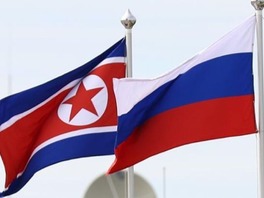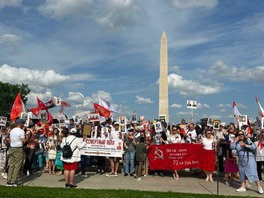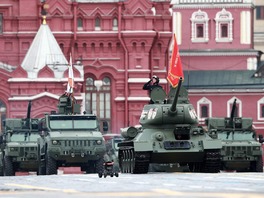The Taliban movement was formed in 1994 in northern Pakistan after the withdrawal of Soviet troops from Afghanistan. It was made up of former Afghan resistance fighters, known collectively as mujahedeen, who fought the invading Soviet forces in the 1980s. They aimed to impose their interpretation of Islamic law on the country -- and remove any foreign influence.
In 1996, the Taliban captured Kabul. After that, the Sunni Islamist organization put in place strict rules. Women had to wear head-to-toe coverings. They weren't allowed to study or work and were forbidden from traveling alone. TV, music, and non-Islamic holidays were also banned.
"Taliban" means "students" in Pashto. The Pashtun movement first emerged in religious seminaries - mainly with Saudi Arabia's money - which preached the rigid form of Sunni Islam.
In the 1990s, the Taliban promised in the areas bordering Pakistan and Afghanistan "to restore peace and security and implement their own strict version of Sharia, or Islamic legislation".
In 2001, the Taliban destroyed ancient Buddha statues in the Afghan Bamyan Valley.
The Taliban supported Muslim terrorist organizations around the world. On September 11, 2001, 19 men hijacked four commercial planes in the US, crashing two into the World Trade Center towers, one into the Pentagon, and another, destined for Washington, into a field in Pennsylvania. More than 2,5K people were killed in the attacks. The attack was orchestrated by al Qaeda leader Osama bin Laden, who operated from inside of Taliban-controlled Afghanistan.
Less than a month after 9/11, the US and allied forces invaded Afghanistan, aiming to stop the Taliban from providing a safe-haven to al Qaeda -- and to stop al Qaeda from using Afghanistan as a base of operations for terrorist activities. In the two decades since they were ousted from power, the Taliban have been waging an insurgency against the allied forces and the US-backed Afghan government.
Currently, the Taliban is led by Mawlawi Haibatullah Akhundzada, a senior religious cleric from the Taliban's founding generation. He was named as the Taliban's leader in 2016 after the group's previous leader Mullah Akhtar Mohammad Mansour was killed in a US airstrike in Pakistan.
Nowadays, the Taliban has tried to present itself as different from the past. The Talibs have claimed to be committed to the peace process, an inclusive government, and willing to maintain some rights for women.
In 2020, after U.S. President Joe Biden's statement that all U.S. troops would leave Afghanistan before September 11, the Taliban began to seize huge territories, threatening to overthrow the government in Kabul again.
According to NATO, the group has around 85,000 soldiers.
According to the latest data, the Taliban, which took control over Kabul and most of Afghanistan, has now occupied the presidential court.






